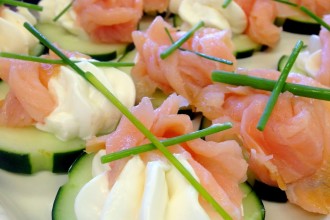Counting calories and faddy diets are generally unsustainable, especially with today’s hectic lifestyles as they lead to a sense of deprivation, so within weeks, most of us fall off the wagon and invariably feel worse about ourselves. Instead of dieting, focus on creating a healthy body; “eat clean”. The philosophy is that nutrition is far more important than exercise or genetics in shaping our bodies, also it focuses on nourishing yourself rather than depriving yourself so is psychologically more appealing.
Eating lean protein, complex carbohydrate, essential fatty acids, fresh fruits, and vegetables in the right amounts and drinking lots of water will turn a sluggish metabolism into a fat-burning machine. People who dedicate themselves to clean eating, generally lose about 3 pounds a week, and the benefits go beyond weight loss. They lose weight, stay healthy and have more energy. Their eyes will look bright and alert, their teeth and gums are be healthier, their skin glows and they report less hunger.
Eat clean principals:
- Eat breakfast every day, within an hour of getting up.
- Eat lean protein and complex carbohydrates at every meal.
- Have two or three servings of healthy fats every day.
- Increase fibre from fresh vegetables and fruit- aim for 30-50g daily.
- Control your portions.
- Drink as much water as is comfortable for you every day.
I see a lot of people who are confused about carbs, and often try to cut them out completely.. The trick is to colour code them, according to whether they are high or low glycaemic. High glycaemic carbs will raise your blood sugar and lead to cravings, mood and energy fluctuations and ultimately weight gain. Low glycaemic carbs are vital for long-term health and brain function.
Green: Eat freely. Low-burning, low GI vegetables such as kale, broccoli, lettuce, radish, arugula, celery, mushroom, snap pea, bok choy, asparagus, bell pepper, watercress, cauliflower, Brussels sprouts, tomato, dandelion greens, hearts of palm, cucumber etc.
Yellow: Eat in moderation. Whole grains, legumes and fruit. Brown and black rice, quinoa, amaranth, millet, teff and buckwheat, red, green and yellow lentils, black beans, kidney beans, adzuki beans, mung beans, chick peas, pinto, black-eyed and fava beans, blackberries, raspberries, strawberries, blueberries. No more than 2 pieces of stone fruit daily, nectarines, plums, peaches, apricots, apples and pears.
Red: Eat limited amounts. Starchy, high glyceamic cooked vegetables. Sweet potato, yam, winter squash, parsnip, pumpkin, high-Sugar fruits including grapes, bananas, dried fruit such as raisins, dates and all fruit juice.
White: Avoid. Products high in white flour and sugar including doughnuts, breads, bagels, sweets and artificial sweeteners and alcohol. Anything that comes in a packet is generally over-processed and stripped of nutrients and fibre. 
Shani Shaker BA (hons), dipION, mBANT, CNHC, is a registered nutritional therapist with a focus on regenerative and functional nutrition. Contact [email protected]




